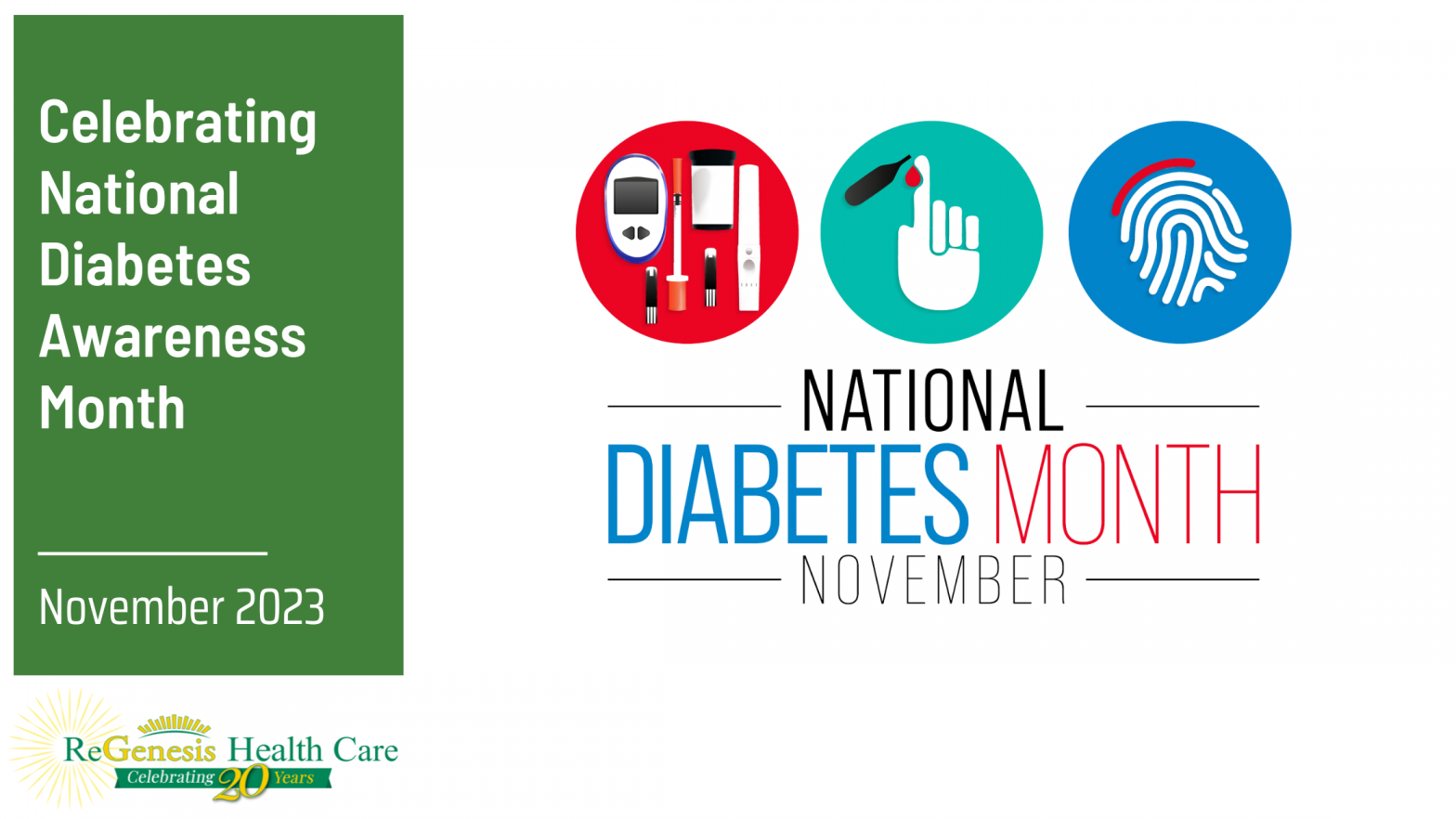National Diabetes Month: Raising Awareness and Taking Action
November is National Diabetes Month, a time to raise awareness about diabetes, its risks, and complications. Diabetes is a growing epidemic affecting millions of people worldwide. According to the International Diabetes Federation (IDF), approximately 463 million people have diabetes, and this number is expected to continue growing, reaching 700 million by 2045.
In the United States, diabetes is the seventh leading cause of death, and it affects over 34 million people, or 1 in 10 Americans. Diabetes is a chronic condition that affects the way your body processes blood sugar (glucose), leading to high blood sugar levels that can cause several health problems.
This National Diabetes Month, let’s take time to learn more about the condition, understand ways to prevent it, and support those living with diabetes.
What is Diabetes?
Diabetes is a condition where your body either doesn’t produce enough insulin, the hormone that regulates blood sugar, or doesn’t effectively use the insulin it produces. There are three main types of diabetes: Type 1, Type 2, and gestational diabetes.
Type 1 diabetes usually appears in childhood or early adulthood and occurs when your body’s immune system attacks and destroys the cells that produce insulin. People with Type 1 diabetes require daily insulin injections or an insulin pump to survive.
Type 2 diabetes is the most common type of diabetes, accounting for about 90% of all cases. It usually develops in adulthood but can affect children too. Type 2 diabetes occurs when your body becomes resistant to insulin or cannot produce enough insulin to control blood sugar levels.
Gestational diabetes occurs during pregnancy and affects 2-10% of pregnant women. It increases the risk of developing Type 2 diabetes later in life.
Diabetes Risks and Complications
Diabetes can cause several health problems if left uncontrolled. It can damage your blood vessels and nerves, leading to heart disease, stroke, kidney disease, eye problems, and nerve damage. It can also affect your dental health, increase the risk of infections, and cause foot problems that can lead to amputations.
Risk factors for diabetes include being overweight or obese, having a sedentary lifestyle, poor diet, genetics, and age. African Americans, Hispanic/Latino Americans, American Indians, and Pacific Islanders are at a higher risk of developing diabetes than white Americans.
Preventing and Managing Diabetes
Although there is no cure for diabetes, you can significantly reduce your risk of developing the condition or manage it. According to the Centers for Disease Control and Prevention (CDC), making lifestyle changes such as following a healthy diet, being physically active, not smoking, and achieving and maintaining a healthy weight can prevent or delay Type 2 diabetes.
Managing diabetes involves monitoring your blood sugar levels regularly. Also, taking medications as prescribed, following a healthy diet, being physically active, and getting regular check-ups with healthcare providers.
Supporting People Living with Diabetes
Living with diabetes can be challenging. People with diabetes may face stigma, discrimination, and misunderstandings about their condition. As a community, we can support people living with diabetes by raising awareness, advocating for access to healthcare and resources, and educating ourselves and others about the condition.
There are several resources available for people living with diabetes, including support groups, education programs, and online communities. The American Diabetes Association offers support groups and educational programs for people with diabetes and their families.
National Diabetes Month is an opportunity to raise awareness about diabetes, its risks, and complications. We must understand diabetes, its causes, and how to manage the condition to prevent its complications. This month, let’s take action to support those living with diabetes, advocate for access to healthcare and resources, and make lifestyle changes that can prevent or delay Type 2 diabetes. Remember, small changes can make a big difference in preventing diabetes, and early detection and treatment are critical for managing the condition. Let’s work together to raise awareness and take action towards a healthier future.
Contact us to schedule a check-up appointment with one of our healthcare providers.



